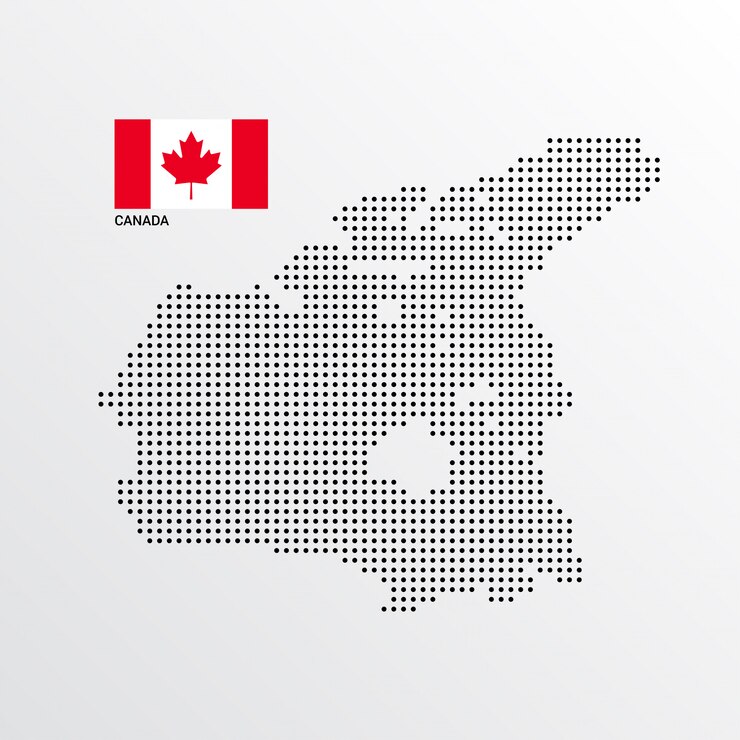Canada’s Immigration, Refugees, and Citizenship Canada (IRCC) recently made a significant move to attract skilled workers worldwide by lowering the score requirement for permanent residency. This development is part of Canada’s broader strategy to foster a diverse and vibrant economy, ensuring a steady influx of skilled talent to meet the nation’s economic needs. Canada Path to Permanent Residency
Latest Draw Details
On July 2, 2024, IRCC issued 920 invitations for permanent residency under the Provincial Nominee Program (PNP) through the Express Entry system. The minimum Comprehensive Ranking System (CRS) score required for this draw was 739. This marks a continued effort by Canada to attract top talent from various countries, reinforcing its commitment to diversity and economic growth. Canada Path to Permanent Residency
This recent draw follows another conducted on June 19, 2024, where 1,499 invitations were issued under the PNP, with a minimum CRS score of 663. The decrease in the CRS score requirement highlights the dynamic nature of the Express Entry system, aiming to provide opportunities across a broad range of CRS scores. The tie-breaking rule applied ensures fairness by giving priority to profiles submitted earlier when multiple candidates have the same lowest CRS score. Canada Path to Permanent Residency

Express Entry Pool Distribution
As of July 2, 2024, the distribution of CRS scores within the Express Entry pool remains competitive. Here’s a breakdown of the candidates in different score ranges:
- 601-1200: 940 candidates
- 501-600: 16,521 candidates
- 451-500: 64,761 candidates
The highest concentration of candidates is in the 451-500 range, illustrating the competitive nature of the process.
Understanding the Provincial Nominee Program (PNP)
The Provincial Nominee Program (PNP) is a crucial pathway for skilled workers aiming for permanent residency in Canada. This program allows provinces and territories to nominate individuals based on their skills, education, and work experience, ensuring they meet the specific economic needs of the region.
Each province and territory administers its own immigration programs under the PNP, targeting distinct groups such as students, businessmen, skilled workers, and semi-skilled workers. These programs are designed to address specific labor market needs, ensuring a consistent flow of talent to support local economies.
For instance, provinces like Ontario and British Columbia focus on attracting tech professionals, while regions like Manitoba and Saskatchewan might prioritize agricultural experts or tradespeople. By tailoring their immigration programs to local needs, provinces can better support their economic growth and development.
How the Express Entry System Works
The Express Entry system is Canada’s primary method for managing applications for permanent residency from skilled immigrants. It encompasses several immigration programs:
- Federal Skilled Worker Program (FSWP)
- Canadian Experience Class (CEC)
- Federal Skilled Trades Program (FSTP)
- Provincial Nominee Program (PNP)
Candidates in the Express Entry pool are ranked using the Comprehensive Ranking System (CRS), which assigns points based on factors such as age, education, work experience, and language ability. The CRS score is crucial as it determines eligibility for receiving an Invitation to Apply (ITA) for permanent residency.
The Federal Skilled Worker Program (FSWP), Canadian Experience Class (CEC), Federal Skilled Trades Program (FSTP), and Provincial Nominee Program (PNP) are all immigration programs in Canada aimed at different categories of skilled workers. Here’s an overview of each:
Federal Skilled Worker Program (FSWP)
The Federal Skilled Worker Program is one of the main pathways for skilled workers to immigrate to Canada permanently. Key aspects include:
- Eligibility: Candidates are assessed based on a points system that considers factors such as age, education, work experience, language ability (English and/or French), job offer (if applicable), and adaptability.
- Express Entry: FSWP applications are managed through the Express Entry system, where candidates create a profile and are ranked using the Comprehensive Ranking System (CRS). The highest-ranked candidates are invited to apply for permanent residence.
Canadian Experience Class (CEC)
The Canadian Experience Class is designed for individuals who have already gained skilled work experience in Canada. Key aspects include:
- Eligibility: Applicants must have at least one year of skilled work experience in Canada within the last three years, meet language proficiency requirements, and plan to live outside the province of Quebec.
- Express Entry: Like the FSWP, CEC applications are processed through the Express Entry system. Candidates create a profile and are ranked using the CRS.
Federal Skilled Trades Program (FSTP)
The Federal Skilled Trades Program is aimed at skilled tradespeople who want to become permanent residents of Canada. Key aspects include:
- Eligibility: Applicants must have a minimum of two years of full-time work experience (or equivalent part-time work) in a skilled trade within the last five years, meet job requirements for the skilled trade as set out in the National Occupational Classification (NOC), have an offer of full-time employment for at least one year or a certificate of qualification in that skilled trade issued by a Canadian provincial, territorial, or federal authority.
- Express Entry: FSTP applications are also managed through the Express Entry system, with candidates being ranked using the CRS.
Provincial Nominee Program (PNP)
The Provincial Nominee Program allows Canadian provinces and territories to nominate individuals who want to immigrate to Canada and settle in a specific province. Key aspects include:
- Eligibility: Each province and territory has its own specific criteria and streams targeting students, business people, skilled workers, or semi-skilled workers. Candidates must meet the specific requirements of the province or territory they are applying to.
- Express Entry and Non-Express Entry: Some PNP streams are aligned with the Express Entry system, allowing candidates to receive an additional 600 CRS points if nominated. Other streams operate outside of Express Entry, where candidates apply directly to the province or territory.
These programs collectively cater to different types of skilled workers, providing multiple pathways to Canadian permanent residency.
Comprehensive Ranking System (CRS)
The CRS score is a pivotal component of the Express Entry system. It evaluates candidates on various criteria:
- Age: Younger candidates typically receive higher scores.
- Education: Higher educational qualifications can significantly boost CRS scores.
- Work Experience: Both Canadian and foreign work experience are valued.
- Language Ability: Proficiency in English and/or French is critical.
- Additional Factors: Including a valid job offer, provincial nomination, or Canadian degrees, diplomas, or certificates.
Regular draws are conducted approximately every two weeks, each with a specific cut-off score that candidates must meet or exceed to receive an ITA. This system ensures that Canada selects the highest-ranking candidates, thus maintaining a high standard for new immigrants.
Benefits of the Provincial Nominee Program (PNP)
The PNP offers numerous advantages for both the candidates and the provinces. For candidates, it provides an alternative route to permanent residency, especially for those who may not have high CRS scores in the Express Entry system. A provincial nomination adds 600 points to a candidate’s CRS score, almost guaranteeing an ITA in subsequent draws.
For provinces, the PNP allows them to address specific labor market needs by selecting candidates who are more likely to settle and remain in the region. This targeted approach helps provinces fill gaps in their workforce, promoting economic stability and growth.

Success Stories and Case Studies
To illustrate the effectiveness of the PNP, consider the case of Sarah, an IT professional from India. Despite having a robust professional background, Sarah’s CRS score was not high enough to receive an ITA through the Express Entry system. However, she applied through the Ontario Immigrant Nominee Program (OINP) due to her skills in software development, a high-demand occupation in Ontario. With a provincial nomination, Sarah’s CRS score increased significantly, leading to an ITA and subsequent permanent residency. Now, she works for a leading tech firm in Toronto, contributing to the local economy.
Preparing for Express Entry and PNP
For aspiring immigrants, understanding and preparing for the Express Entry and PNP processes is crucial. Here are some steps to consider:
Evaluate Eligibility:
Assess your eligibility for various programs under Express Entry and PNP. Utilize online tools and resources provided by IRCC.
Improve CRS Score:
Enhance your CRS score by improving language proficiency, gaining additional work experience, or obtaining higher educational qualifications.
Research Provincial Programs:
Each province has specific criteria and in-demand occupations. Research these programs to identify where your skills are most needed.
Submit an Express Entry Profile:
Create and submit a profile in the Express Entry pool. Ensure all information is accurate and up-to-date.
Apply for PNP:
If eligible, apply for a provincial nomination to boost your CRS score.
Stay Informed:
Keep up-to-date with the latest news and updates from IRCC and provincial immigration programs.
Conclusion: Canada’s efforts to lower the CRS score requirement for skilled workers’ permanent residency under the PNP reflect its commitment to attracting a diverse and skilled workforce. By continuously adjusting the Express Entry system and PNP, Canada ensures that it meets its economic needs while providing opportunities for immigrants worldwide.
Aspiring immigrants should stay informed, improve their profiles, and explore all available pathways to maximize their chances of securing permanent residency in Canada. With the right preparation and understanding, the dream of living and working in Canada can become a reality.

Disclaimer:
The information provided on this blog is for general informational purposes only. While we strive to keep the content up to date and accurate, we make no representations or warranties of any kind, express or implied, about the completeness, accuracy, reliability, suitability, or availability with respect to the website or the information, products, services, or related graphics contained on the website for any purpose. Any reliance you place on such information is therefore strictly at your own risk.
Source: nairametrics.com
- The Rise and Challenges of Canada’s Temporary Foreign Worker Program
- Comprehensive Guide to Canada’s Express Entry Draw Results and the Provincial Nominee Program
- How has the Canada Citizenship Scheme changed over the years?
Also read:
- Why Canada’s 32% Drop in Study Permits for Indian Students in 2024 Could Affect Your Future Plans
- Canada Launches Rural and Francophone Community Immigration Pilots: A New Era for Skilled Immigrants
- Canada Expands Post-Graduation Work Permit (PGWP) Eligibility: A Gateway to Endless Opportunities for Indian Students
- Canada Takes Action to Combat Fraud in the Express Entry System
- Canada Announces Big Changes to Express Entry Immigration System: What It Means for Indian Aspirants



